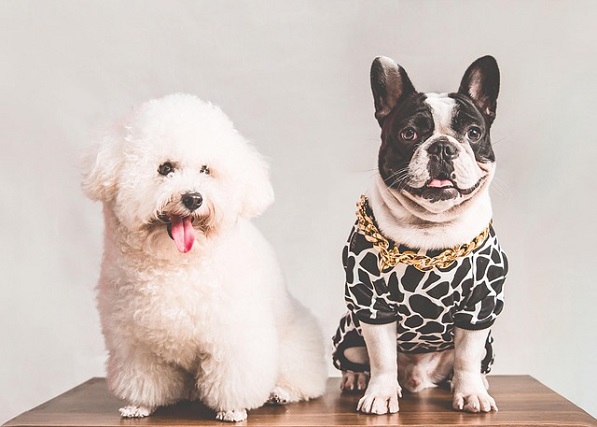
What is glaucoma in a dog?
You might notice your dog squinting more at mealtime or avoiding bright sunlight—these small changes could be early signs of a serious eye condition.
Coming home to a shredded couch cushion and a whimpering puppy by the door? That’s what happened to my neighbor in Chicago with her 12-week-old golden retriever, Lila. At first, she thought it was just “puppy mischief,” but the vet pointed out: those aren’t random acts—they’re signs of separation anxiety. Puppies are wired to stick close to their pack, so being left alone can feel terrifying, and their little bodies show it in ways that are easy to miss.
Separation anxiety in puppies starts in their brains—think of it like a toddler’s fear of the dark, but amplified. Common clues? Whining that turns into howling 10 minutes after you leave, even if they were quiet at first. Lila would scratch the door until her paws were raw, a clear signal she was panicking. Another sign: accidents in the house, even if they’re mostly potty-trained. My cousin’s beagle pup, Max, never messed up when someone was home, but left alone for an hour? He’d pee by the front door, a stress response, not bad behavior. Chewing is another red flag—they target items that smell like you, like shoes or blankets, because your scent makes them feel safer.
What to do? Start small. Leave for 2 minutes, then 5, gradually building up. Lila’s owner practiced this while doing laundry in the basement, popping up to praise her with a treat when she stayed calm. Using a crate (with a cozy blanket) can help—puppies see it as a den, not a punishment. But never force them in; leave the door open and toss treats inside so they go in willingly. In Portland, a trainer I know swears by leaving a worn t-shirt of yours in their space—the familiar smell eases their nerves.

Legal stuff matters even here. In New York, excessive barking can get you a noise complaint, so working on anxiety helps keep the peace. Make sure your puppy’s vaccines are up to date too—rabies shots are mandatory in every state, and socialization (which helps with anxiety) should wait until they’re fully vaccinated to avoid disease. When you’re out walking, even for short trips to ease separation, always bring poop bags. Cleaning up is part of being a good neighbor, and calm outings reinforce positive behavior.
Never scold a puppy for anxious behavior. Lila once peed on the rug when left alone, and her owner felt guilty for leaving her too long, not angry. Yelling only makes their fear worse. Instead, clean it up quietly and try a shorter absence next time. Positive reinforcement—like a “Good girl!” when they stay quiet for 3 minutes—builds trust. They need to learn that you always come back, and kindness makes that lesson stick.
Apartment living? Soundproof their space a little—thick rugs help muffle scratching sounds for neighbors. Let your building know you’re working on training; most people are understanding if you’re proactive. When taking the stairs, if your puppy gets nervous, pick them up—comfort during small separations (like waiting for the elevator) helps them handle bigger ones later.
Puppies don’t mean to misbehave—they’re just scared. With patience and small steps, you’ll help them feel secure, even when you’re not around.

You might notice your dog squinting more at mealtime or avoiding bright sunlight—these small changes could be early signs of a serious eye condition.

Let’s set the scene: It’s a sweltering Phoenix afternoon—105°F outside—and you rushed your 2-year-old Lab mix, Cooper, on a quick walk to “get it over with.”

Let’s get real: You’re in your Miami apartment, watching your 3-year-old Corgi, Loki, struggle to climb the stairs to your second-floor unit.

Many dog owners brush off occasional scratching as just “dog behavior,” but persistent itching often signals something more—like a food allergy.

You might first notice your dog scratching more than usual—chewing at their paws until the fur looks thin, or rubbing their face against the couch nonstop.

Let’s be real: You’re standing in your Chicago apartment, watching your 3-year-old Beagle, Max, huff and puff just to climb onto the couch.